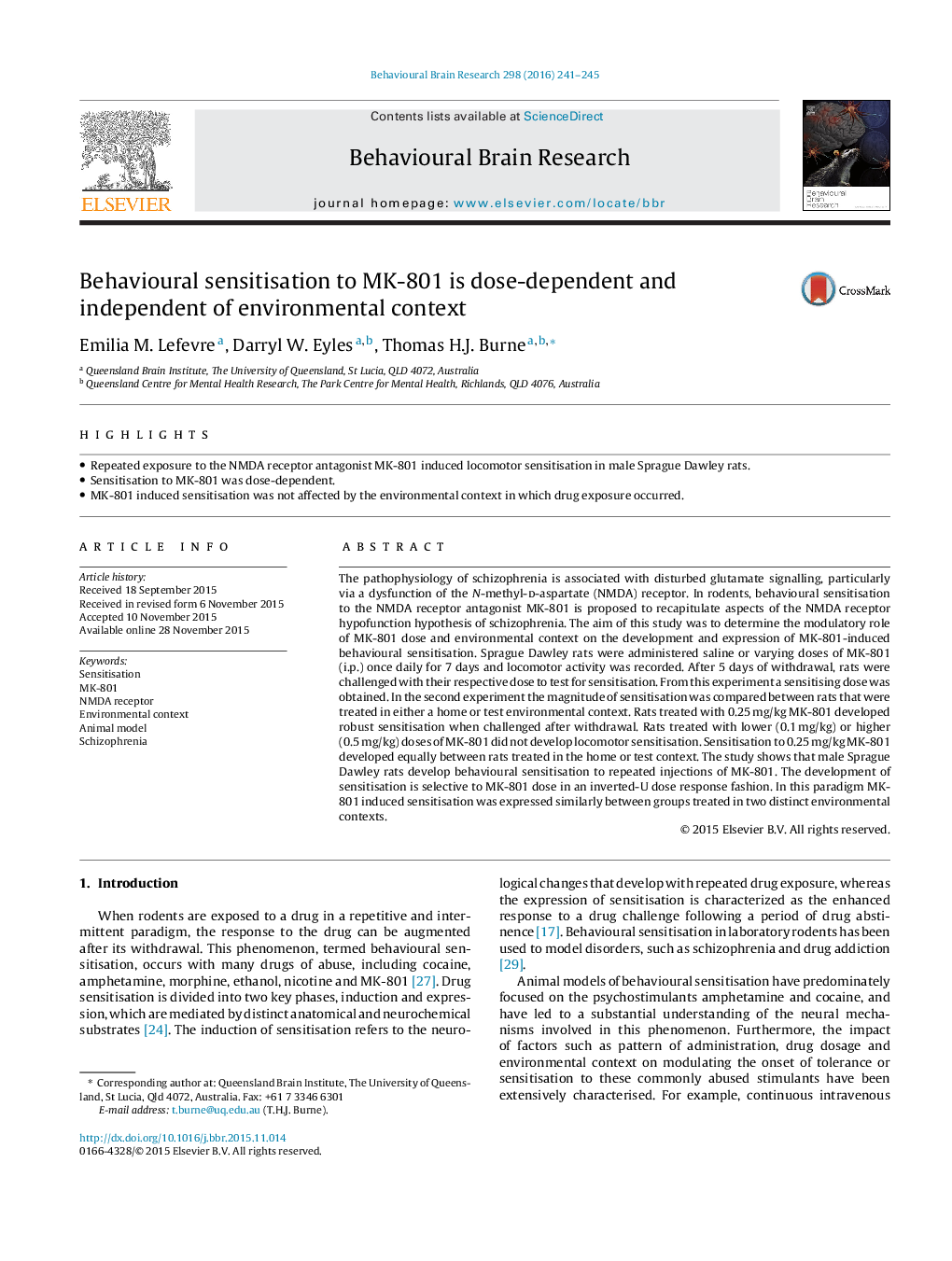| Article ID | Journal | Published Year | Pages | File Type |
|---|---|---|---|---|
| 6256304 | Behavioural Brain Research | 2016 | 5 Pages |
â¢Repeated exposure to the NMDA receptor antagonist MK-801 induced locomotor sensitisation in male Sprague Dawley rats.â¢Sensitisation to MK-801 was dose-dependent.â¢MK-801 induced sensitisation was not affected by the environmental context in which drug exposure occurred.
The pathophysiology of schizophrenia is associated with disturbed glutamate signalling, particularly via a dysfunction of the N-methyl-d-aspartate (NMDA) receptor. In rodents, behavioural sensitisation to the NMDA receptor antagonist MK-801 is proposed to recapitulate aspects of the NMDA receptor hypofunction hypothesis of schizophrenia. The aim of this study was to determine the modulatory role of MK-801 dose and environmental context on the development and expression of MK-801-induced behavioural sensitisation. Sprague Dawley rats were administered saline or varying doses of MK-801 (i.p.) once daily for 7 days and locomotor activity was recorded. After 5 days of withdrawal, rats were challenged with their respective dose to test for sensitisation. From this experiment a sensitising dose was obtained. In the second experiment the magnitude of sensitisation was compared between rats that were treated in either a home or test environmental context. Rats treated with 0.25Â mg/kg MK-801 developed robust sensitisation when challenged after withdrawal. Rats treated with lower (0.1Â mg/kg) or higher (0.5Â mg/kg) doses of MK-801 did not develop locomotor sensitisation. Sensitisation to 0.25Â mg/kg MK-801 developed equally between rats treated in the home or test context. The study shows that male Sprague Dawley rats develop behavioural sensitisation to repeated injections of MK-801. The development of sensitisation is selective to MK-801 dose in an inverted-U dose response fashion. In this paradigm MK-801 induced sensitisation was expressed similarly between groups treated in two distinct environmental contexts.
